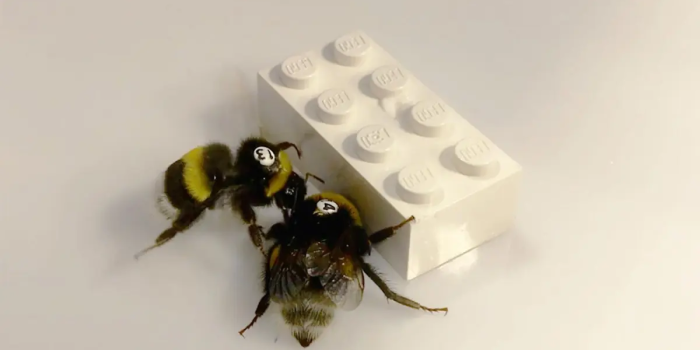Researchers at the University of Oulu in Finland have shown that bees can cooperate outside of their hives, providing exciting new insights into their behaviour.
Bees are traditionally thought of as hardworking, instinctive creatures that work only for the benefit of their colonies. Recent research, however, under the direction of Olli Loukola, an associate professor at the University of Oulu and behavioural ecologist, challenges this assumption.

Loukola and his team trained bumblebees to cooperate on various tasks, defying the popular idea that sophisticated cooperative tasks require considerable cognitive capacities associated with large-brained mammals like humans and chimpanzees. In one experiment, bees had to cooperate to unlock a door at the end of a tunnel, while in another, they had to push a Lego block to get nectar.

The results provideterrificng new perspectives on bee behaviour. When trained in pairs, bees demonstrated peer-influenced behaviour, adapting their motions and activities to their partner’s presence or absence. Interestingly, bees demonstrated coordinated behaviour in both tasks, suggesting intentional collaboration.
When it came to the more complex challenge of the transparent tunnel, bees demonstrated intelligent cooperation. They showed unprecedented awareness and coordination for bees, adapting their movements in response to their partner’s activities. However, more investigation is required to understand the scope of their understanding fully.
Professor Loukola emphasized the social influence on bee cooperation and the significance of these findings. By revealing the complexity of non-human cognitive processes, scientists want to enhance our understanding of environmental preservation and animal welfare, promoting a more thorough approach to scientific investigation and public awareness.
The research was published in the journal Proceedings of the Royal Society B.


